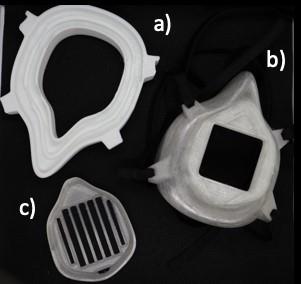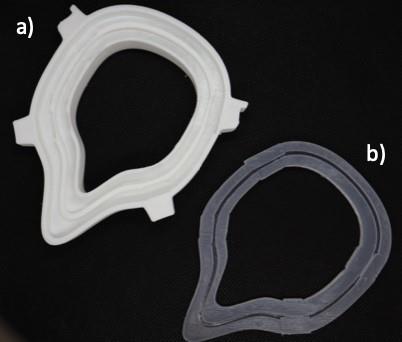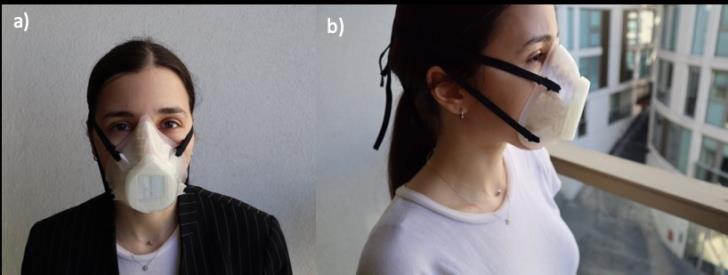Dr Theodora Papavasiliou, a Cypriot doctor specialising in microsurgery who lives in London and works at St Thomas Hospital spoke to Phileleftheros explaining that she had to leave her specialisation behind to staff ICUs and A&Es with her colleagues amid the Covid-19 crisis in the UK.
She now serves at a hospital that treats suspect Covid-19 cases.
Together with her husband, Stelios Hadjimichael who has a doctorate in nanobiotechnology they create reusable masks with instructions on how to make our own at home via their website https://www.stelth.eu/.
Papavasiliou told philenews that their startup Stelth Ltd was created a while ago and mainly focuses on 3D printing for surgical instruments.
They were recently awarded the Cutlers’ Surgical Prize by the Royal College of Surgeons for their innovation.

Papavasiliou said that shortages in protective gear at hospitals gave them the idea for a project with reusable masks.
The project involves the making of reusable masks at home, and they also plan to make a number of them themselves to donate to health professionals.
Their mask has undergone a fit test and follows the same production procedure as the N95 mask recommended by the WHO and is in use by all hospitals treating Covid-19.
For anyone wishing to make their own, relevant instructions can be found on the Stelth website.
Papavasiliou explained that the procedure costs very little but a 3D printer is required. Estimated production cost is 1.50 GBP per mask.
However, she clarified that should anyone wish to donate their masks to a health professional the product needs to go through a fit test first.

In addition, for those wishing to produce reusable masks, she recommends the use of protective gear during production (i.e. gloves etc) to prevent potential transmission of the virus.
The masks then need to be placed in bags for three days before delivery to allow the virus to dissolve, further reducing the risk of contamination.

The mask can be washed and reused, the two said. Health professionals can wash the parts after every contact with a patient. The filter does not need to be changed after every use as it has a protective cover, and is also biodegradable and removable so it can be cleaned.

Read more:
3D printers forge face shields for fight against the coronavirus






